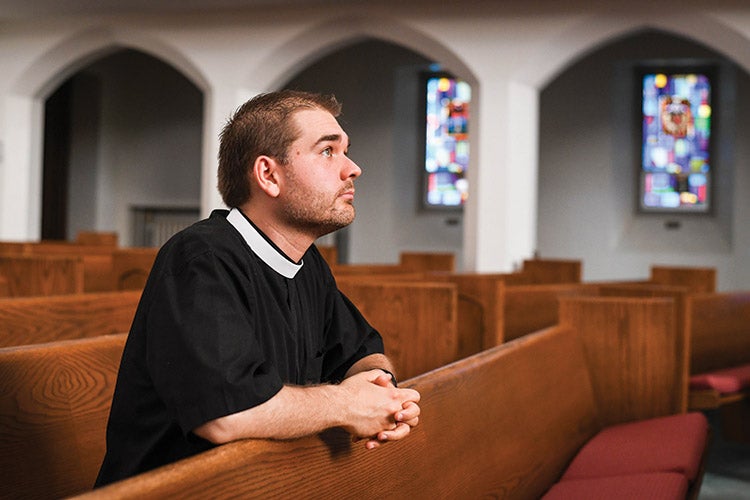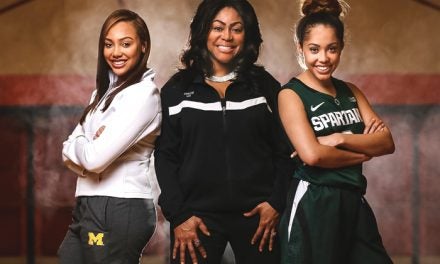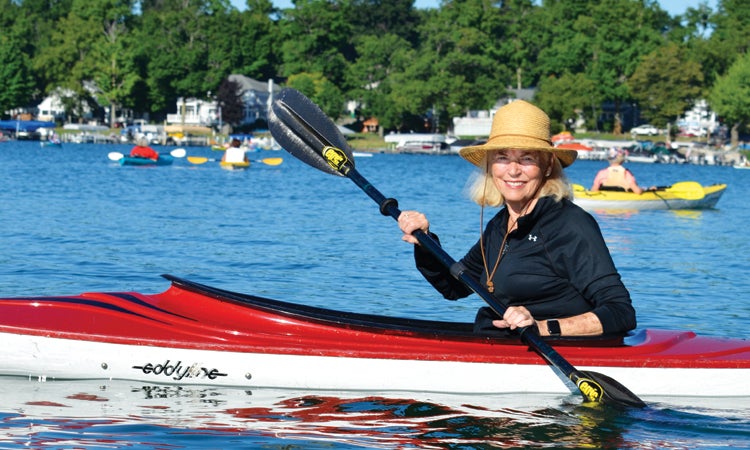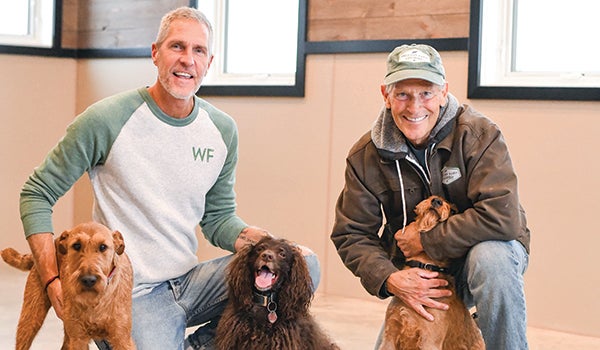By Christina Clark
Pastor Matt Landry sees the historic events that the nation is living through, and looks to his church’s past for guidance. As the youngest senior pastor of the First United Methodist Church in downtown South Bend, Matt, 35, is humbled by the church’s 189-year history.
Arriving in South Bend just a year ago from his last church on Meridian Street in Indianapolis, the downtown setting has made way for new opportunities to serve the community. A COVID-19 pandemic and marches outside may not have been what he expected, but Matt sees these all as a part of the church’s location and mission.
First Church, as Matt and other attendees call it, attracts a diverse congregation of many faith backgrounds. Matt says it is not uncommon for those with backgrounds in the Catholic church, the Jewish faith, and no faith background at all to be sitting next to one another in the pews. The church is also known as a Reconciling Congregation, which means that the church opens its doors and welcomes those from the LGBTQ community to join them.
The church’s mission extends far beyond the sanctuary doors.
In the 1980s, the church founded the Upper Room Recovery Ministry, which now operates next door. The ministry operates as a second step in a sobriety program, where adjustment to living sober counts. The program can house 30 men and 15 women, in separate facilities, right next to the church.
The church provides a food pantry to the community as well. Matt recognizes many other ministries and organizations have stepped into the food pantry space, connecting residents with resources.
“The burden has been lighter for everybody,” he says, of local organizations working to address hunger. “The need will still be here later in the year. We will continue to be here.”
Another program the church runs is its Downtown Soup Kitchen. Also in operation for nearly 30 years, the soup kitchen’s website states that it services 200 to 300 guests each week, and averages 300 guests for Thanksgiving, Christmas and Easter offerings.
“During a time like this, it’s so important to have some systems and structures in place,” Matt says. “I think that’s one of the things the Upper Room has to offer people with that program. In the past, and especially during this time, it’s a safe place for people to be able to come in and talk to somebody.”
Matt says he sees that with the food pantry and soup kitchen as well.
“We have modified the way that we serve in order to keep our workers and guests safe,” he says. “We still have lots of volunteers that have just been amazing during the pandemic.”
The connection is an important part of Matt’s and his church’s ministry in the community.
“I’ve definitely felt that a part of my responsibility as pastor of this church is to be a part of the community and the fabric of downtown South Bend,” Matt says. “Of the good things and the more challenging things.”
Even as things happen in the church’s own streets.
“Since I’ve been here, just across the street on Lafayette Street there have been several shooting incidents, and that included two separate murder incidences across from the church,” he says. “In my first 10 months, I’ve felt that this is my personal responsibility to gather people together to pray in that place.”
Matt makes it a point to be with the community his church serves, in and outside the church’s doors.
“I’m called to the city, specifically downtown, to listen to the guests who come into the soup kitchen, to listen to the concerns those in poverty have in the city,” Matt says. “I’m able to share that with other clergy and members of my church. It’s been a major part of this new ministry that I have taken on in the First Church is the learn the history as well.”
In1963, the church hosted a dinner for Martin Luther King Jr.
“Simply to host that event would have been a big deal, let alone that they would have volunteers in the church to help sponsor it,” Matt says.
Working with the community members in assisting those in poverty, those living with addictions and stepping into sobriety programs, as well as getting in tune with the equality and diversity movements within the city are all a part of the church’s and Matt’s missions.
“It’s really consistent with the DNA and history of this church,” he says.
Photography by Emily Sobecki





